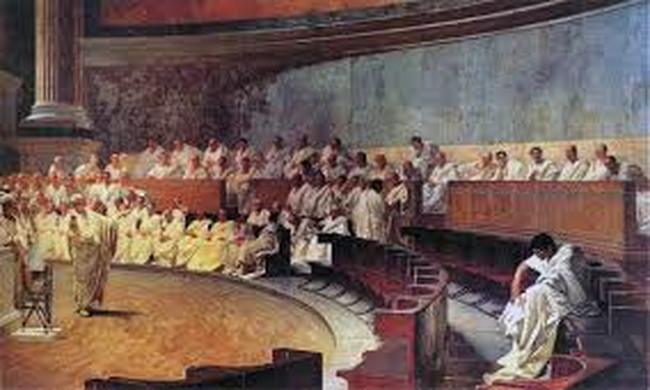I have previously blogged about the importance of competence in the Latin language as a tool in constitutional interpretation. This new article, published by a legal journal, the Federalist Society Review, explains the background in more detail.
It ends with the suggestion that Latin competency be required for those pursuing academic careers in constitutional law or interpretation (mostly law professors, but also some historians). This recommendation may be provocative, but it makes sense. No research university would hire a purported historian of medieval England who was utterly ignorant of Norman French (then the language of the English upper classes). Those aspiring to be professors in the Greek and Roman classics are required to know, in addition to Greek and Latin, German and French and/or Italian, because so much has been published in the latter three languages.
Constitutional commentators who are ignorant of Latin and its effects on 18th century English have done a great deal of interpretive damage. One reason, of course, is that they are not properly equipped for the job. The other reason is that zealots whose principal goal is to promote their political views—rather than engage in objective scholarship—tend to flock to constitutional law. The lack of a Latin requirement (or of any educational requirements other than a law degree) has encouraged them to do so.








